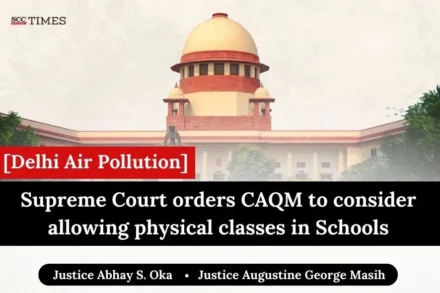
[Delhi Air Pollution] Supreme Court orders CAQM to consider allowing physical classes in Schools
This directive came in response to an application filed by the parents of some students seeking the reopening of schools.

This directive came in response to an application filed by the parents of some students seeking the reopening of schools.
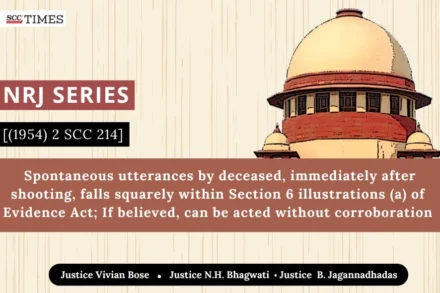
This report covers the Supreme Court’s Never Reported Judgment, on Section 6 of Evidence Act, 1872, dating back to the year 1954.
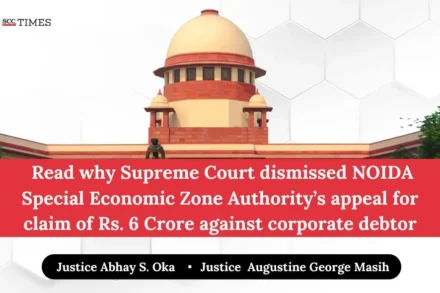
The claims pertaining to the transfer fees, etc., cannot be dealt with by courts or tribunals as the same relates to the commercial wisdom of the Committee of Creditors for they are the best persons to determine their interests, and any such interference is non-justiciable except as provided by Section 30(2) of IBC 2016.
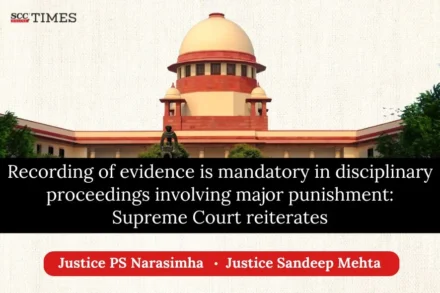
Supreme Court said that the High Court fell into grave error of law while interfering in the well-reasoned judgment rendered by the Tribunal whereby, the Tribunal had quashed the order imposing penalty upon the appellant.
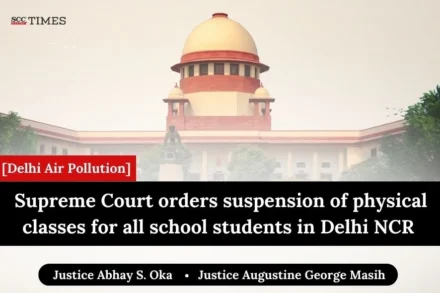
Supreme Court criticized the delay in implementing GRAP stages III and IV, stating that the CAQM’s approach of waiting for AQI levels to improve before taking action violated its 2018 order, which mandated preventive measures for air pollution.
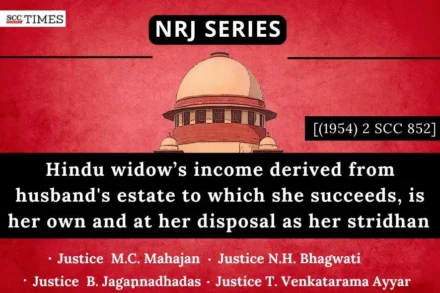
This report covers the Supreme Court’s Never Reported Judgment, on stridhan, dating back to the year 1954.
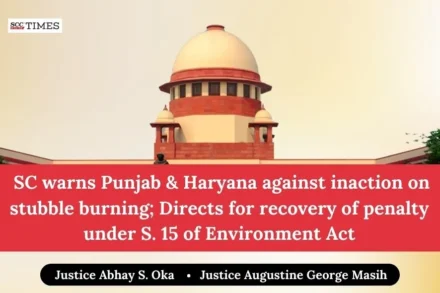
The compliance reports filed by the Governments of Haryana and Punjab showed that there were a large number of farm fires. The Court found reluctance on the part of both Governments to act in terms of Section 14 of the Commission for Air Quality Management in National Capital Region and Adjoining Areas Act, 2021.
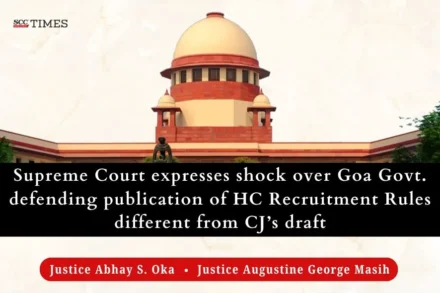
The Goa State notification of High Court of Bombay at Goa Officers and the Members of the Staff on the Establishment (Recruitment and Conditions of Service) Rules, 2023 contained a prefatory statement that they were made by the Chief Justice of the Bombay HC in exercise of the power conferred under Article 229 of the Constitution.
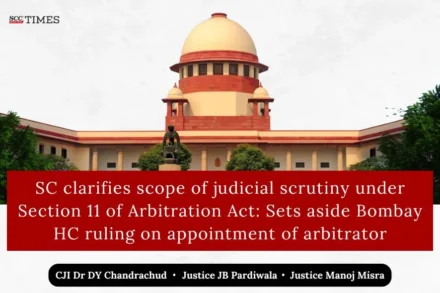
Supreme Court clarified that the limited jurisdiction of the referral Courts under Section 11 must not be misused by parties in order to force other parties to the arbitration agreement to participate in a time-consuming and costly arbitration process.
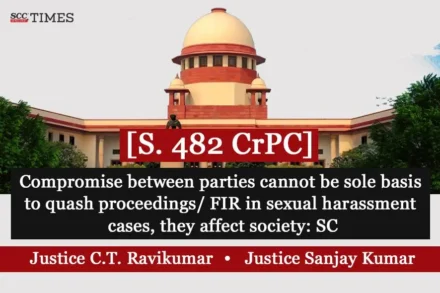
Before exercising the power under Section 482 of CrPC, the High Court must have due regard to the nature and gravity of the crime besides observing and holding that heinous and serious offences could not be quashed even though a victim or victim’s family and the offender had settled.
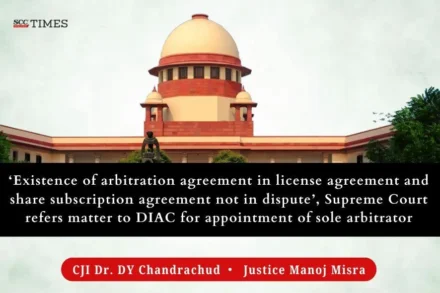
“We have not expressed any opinion on the merits of the claim of either party including regarding the arbitrability of the dispute. All contentions and pleas are kept open for the parties to raise before the arbitral tribunal.”
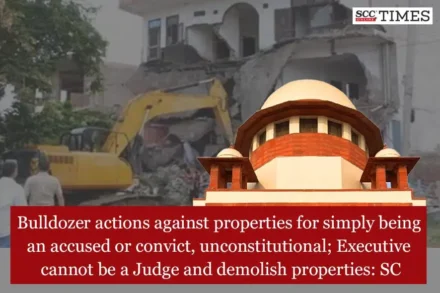
“For an average citizen, the construction of a house is often the culmination of years of hard work, dreams, and aspirations. A house is not just a property but embodies the collective hopes of a family or individuals for stability, security, and a future. Having a house or a roof over one’s head gives satisfaction to any person. If this is to be taken away, then the authority must be satisfied that this is the only option available.”
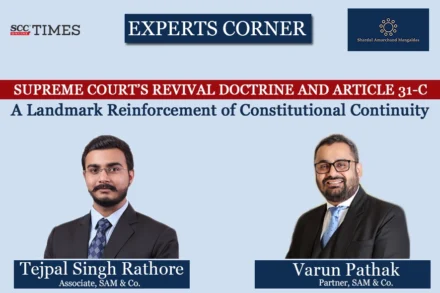
by Varun Pathak* and Tejpal Singh Rathore**
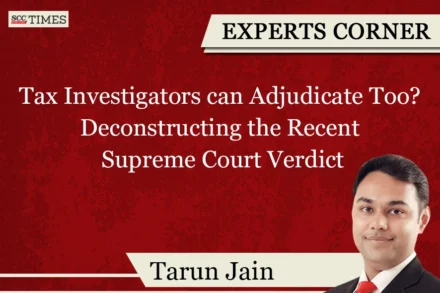
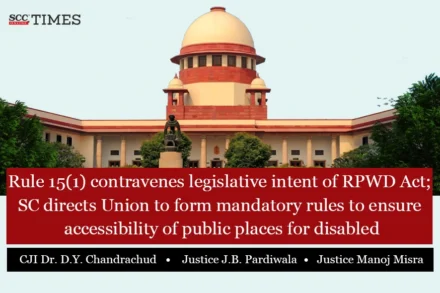
“While it is true that accessibility is a right that requires “progressive realization”, this cannot mean that there is no base level of non-negotiable rules that must be adhered to. While the formulation of detailed guidelines by the various ministries is undoubtedly a laudable step, this must be done in addition to prescribing mandatory rules, and not in place of it.”

This report covers the Supreme Court’s Never Reported Judgment, on corroboration for dying declaration, dating back to the year 1954.
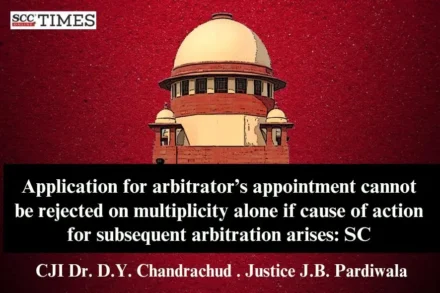
“While applying the principles of Order 23 Rule 1 of CPC to applications under Section 11(6) of the Arbitration and Conciliation Act, 1996, it must be kept in mind that it will act as a bar to only those applications which are filed subsequent to the withdrawal of a previous Section 11(6) application filed on the basis of the same cause of action.”

The Arbitration and Conciliation Act, 1996 does not prohibit Public Sector Undertakings from empanelling potential arbitrators, however, an arbitration clause cannot mandate the other party to select its arbitrator from the panel curated by PSUs.
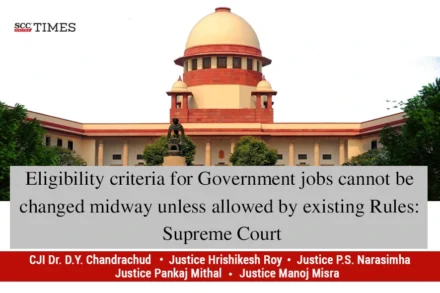
“Recruiting bodies subject to the extant rules may devise an appropriate procedure for bringing the recruitment process to its logical end, provided the procedure is transparent non-discriminatory, non-arbitrary, and has a rational nexus with the object sought to be achieved”
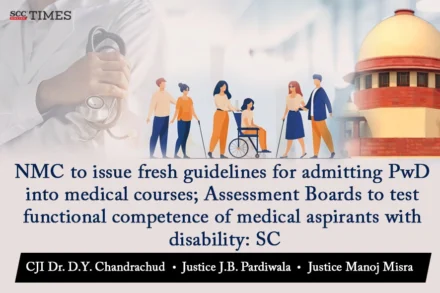
“Central to the principles of reasonable accommodation and the individualized experience of disability is the right to access legal protections without undue mental hardship. If persons with disabilities must repeatedly turn to the courts to correct the missteps of authorities, then the rights recognized by this Court and the RPWD Act risk becoming hollow assurances.”